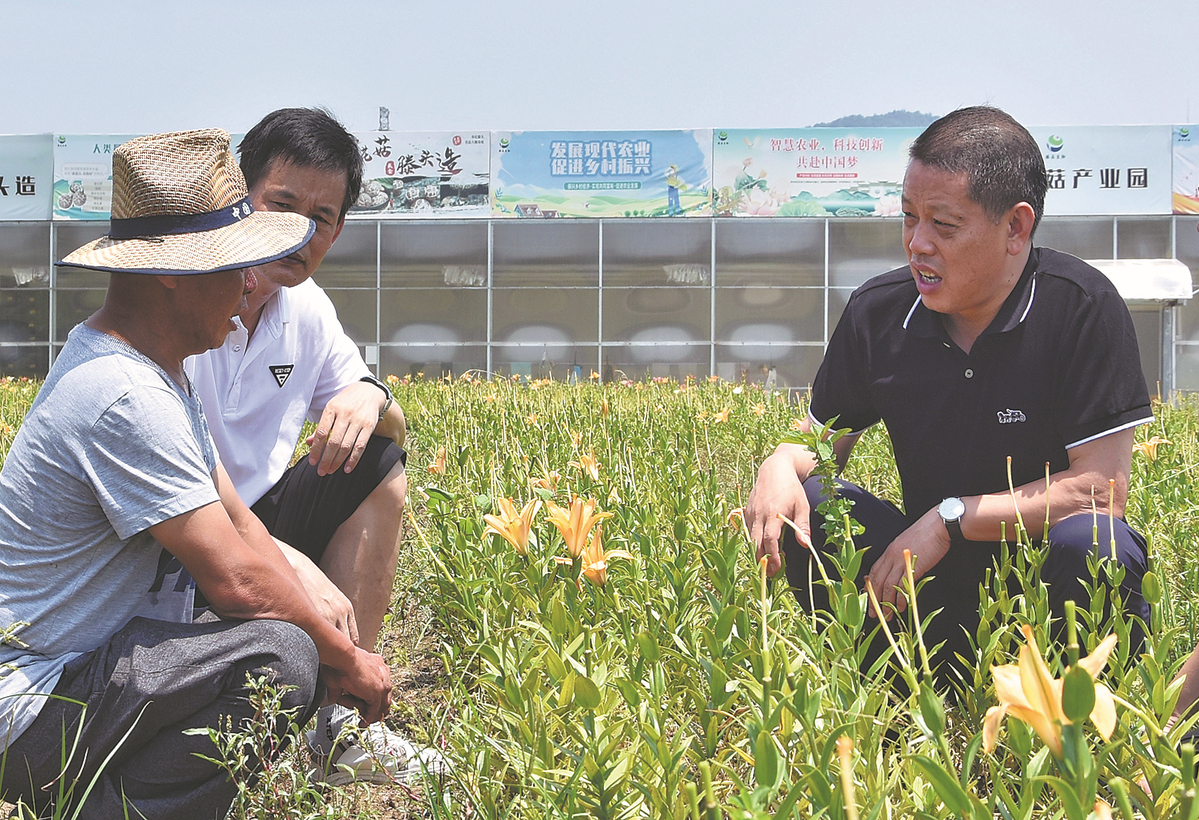Tourism provides development engine for village
 0 Comment(s)
0 Comment(s) Print
Print E-mail China Daily, October 19, 2022
E-mail China Daily, October 19, 2022

"To keep Tengtou moving forward, we cannot rest on what we have achieved to date," said Fu Pingjun, Party secretary of Tengtou village in Ningbo, Zhejiang province, and a delegate to the 20th National Congress of the Communist Party of China.
Innovation is an important engine of growth for the village, and Fu is the one who started the engine.
In 2010, Tengtou — an example of the urbanized villages in China that balanced tourism development and environmental protection — was the only rural pavilion in the Urban Best Practices Area at the Shanghai World Expo. Fu, then a member of the Tengtou village committee, noticed that developing an ecological brand would be a big break for Tengtou.
In his survey, Fu found that ecological themed hotels were popular among visitors who preferred traveling and living in a well-maintained natural environment.
"Tengtou boasts such a great ecological environment, which was well known at the expo, so what about making full use of it?"
No sooner said than done. In 2011, Fu took the lead in establishing the first ecological hotel in Tengtou, which became an instant success.
Due to the environment and all-natural food, many visitors were attracted. All the investments in the eco-hotel were paid back in a year, and the development of the tourism industry also opened a market for villagers troubled by slow sales of their produce.
Fu seized the opportunity to launch the "Tengtou chain" mode, setting up another three eco-hotels with the Tengtou brand around Ningbo in five years. Each hotel is booming and has offered jobs and brought economic benefits for the surrounding villagers.
At the end of 2016, Fu Qiping, then Party secretary of Tengtou, had a stroke, which made him unable to work. Fu Pingjun took over.
During his first year in office, he set himself more than 10 tasks for developing Tengtou. To achieve breakthroughs in developing its tourism industry, Fu talked with local officials as well as residents and launched a new mode in which the whole village was changed into a scenic area, villagers' homes were converted into homestays and produce was packaged as travel products.
Then a list of projects was proposed. Fu maintained his hands-on approach, inspecting the construction and dealing with village affairs in the daytime and sorting and discussing problems at night.
Motivated by him, Tengtou officials put everything they had into the work. As a result, all projects were finished ahead of schedule.
An ecological farm flagship store and a boutique hotel were constructed in 250 days, an entertainment train was launched and began operation in 60 days, and an agricultural innovation center was built in 150 days.
Through years of efforts, Tengtou has upgraded its tourism products relating to five aspects: sightseeing, catering, accommodation, entertainment and education. To attract more visitors, it also canceled admission fees in 2019, and that year visits to Tengtou reached more than 1.77 million and its revenue from tourism was 180 million yuan ($24 million).
Fu never stops promoting rural vitalization in the village. In recent years, he has been seeking experts and good projects across the country, and more than 30 projects are under construction in Tengtou.
In 2021, the GDP of the village hit 12.5 billion yuan and the average income of villagers was 75,000 yuan.
To achieve common prosperity not only in Tengtou but also in the neighboring area, an alliance was established under Fu's guidance consisting of Tengtou and six other villages.
The Tengtou eco-hotels buy produce from the six villages and their villagers are also prioritized in employment. Travel routes connecting Tengtou and these villages have also been launched.
In 2019, Tengtou Village Vitalization College was established, which has trained more than 15,000 people.
Fu has visited other less-developed areas in the Xinjiang Uygur autonomous region, and Guizhou, Jilin and Hebei provinces to share his work experiences and promote common prosperity.





